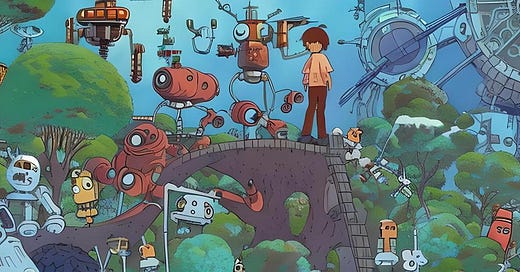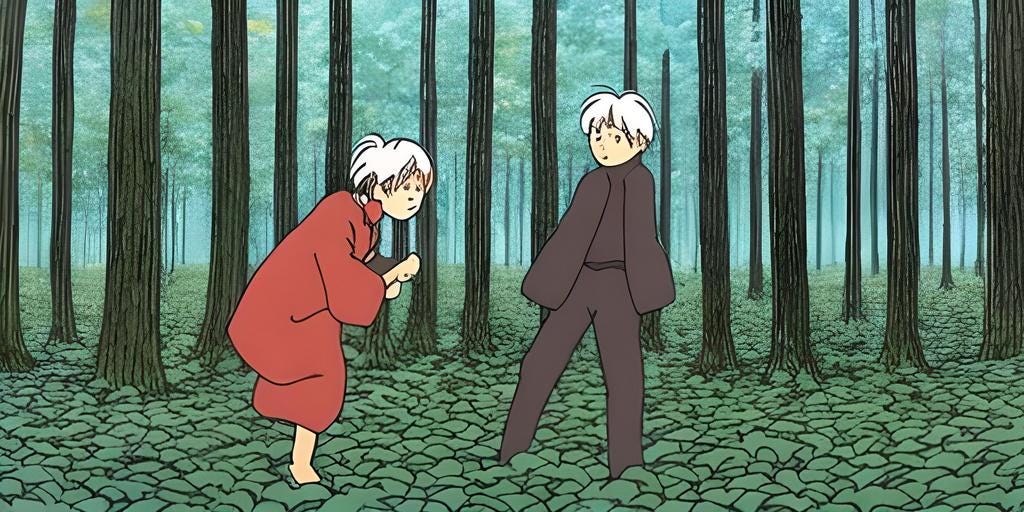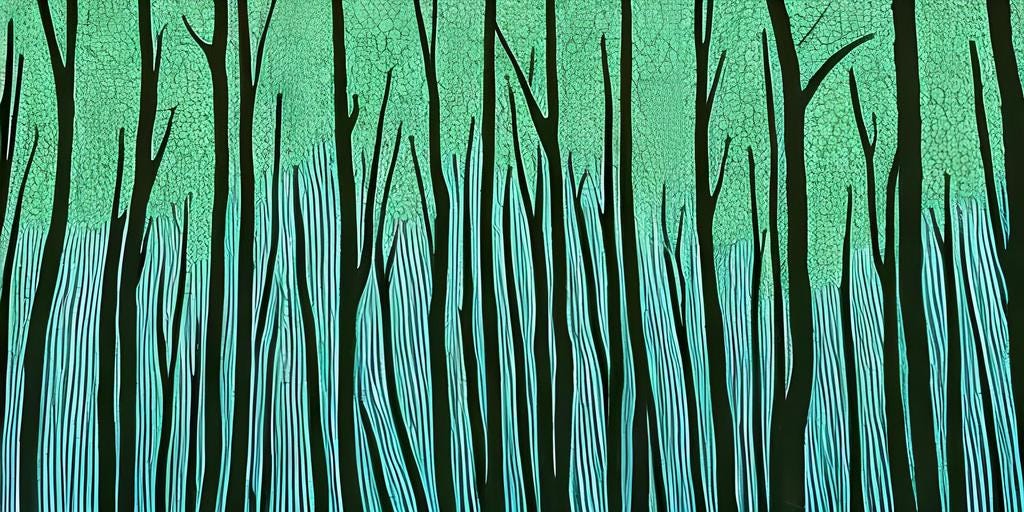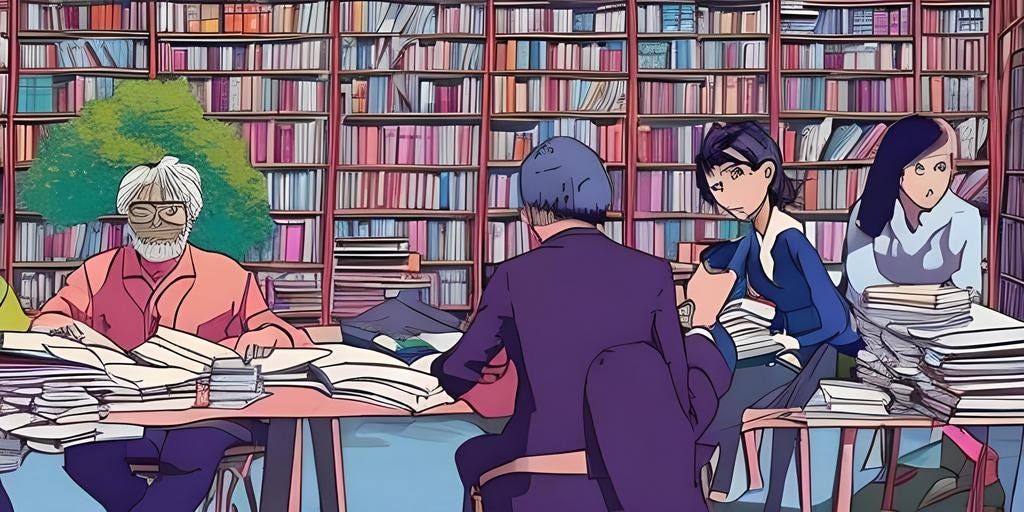Yeah, the first one is me & the others are all AI Avatars. But then again, how exactly is a photo different from other mechanical representations?
Hi and goodbye 2022 from all of us for this is our last post of the year. Instead of making it content heavy*, I thought I would say a few words about how I am approaching my writing these days.
*but not until I get rid of a philosophical niggle.
The Importance of the Given
In last week’s essay 👆🏾, I asked: “is there any system of knowing the Earth that's beyond ISism and OUGHTism?” which came with a response: “our detective work will pass through the GIVEN.”
The reason is easy to motivate, even if it might take several volumes to flesh out the basic insight:
Initial gambit: Ask how IS and OUGHT are GIVEN to us. If you see someone being injured, how is the factual part of the injury and the moral part of the injury given to you in your experience?
Reveal the Given underneath: Notice that the IS and the OUGHT of the injury are two flavors of GIVENNESS.
Shift attention from that which is given (facts and values) to the given itself. Dig into the nature of givenness itself and see how it grounds both facts and values.
Recognize that the investigation of the GIVEN is the more fundamental inquiry. Not only are IS and OUGHT inside the GIVEN, but so are COULD and other modes of givenness. I would therefore gloss IS and OUGHT as given-as-IS and given-as-OUGHT.
And why is the Earth relevant to the given?
The easiest way to motivate that question is by analogy with Metaphysics & Theology. Metaphysics is the study of Being qua Being, and it comes paired with Theology, which is the study of one special Being, i. e., God. If beings are distributed across a (metaphorical) sphere, then metaphysics is the study of the sphere itself in its 'sphericity' and God is the center of the sphere. Or in an alternate reading, the sphere itself. The same with the Earth. If the field of givens is a sphere, our inquiry is the study of the sphere qua sphere and the Earth is a special given, the sphere itself.
ISs and OUGHTs are just categories of GIVENs but the more general study is the study of the GIVEN qua GIVEN with a special given marked out for inquiry: the Earth. I will end this brief exposition with a question: is the GIVEN the most general category or is it part of a field of other generals?
Back to how I am thinking about my writing.
Digital Forests
This newsletter is a digital forest, i.e., like a digital garden but wilder. A digital forest is a proliferation of ideas, arguments, intuitions - some will grow up to be bushes & trees and spawn dense thickets here and there. Some will never take root. Such is the fate of seeds. My goal is to forage, plant, & prune until there’s enough wilderness for the forest to have a life of its own. I am thinking of two constituents of a digital forest in particular:
Seeds
A seed is a single thought, an idea in the making. Here’s an example:
Consciousness pervades the universe
I may or not agree with that thought, but if I plant that seed, it may turn out to be a viable account. Eventually, we want a seed to
Take root and move into a thicket (see below), e.g., the panpsychist seed above should move into a thicket about the nature of consciousness.
Declared dormant and ignored for the time being.
A major difference between a digital forest and a scientific theory is that we don’t get rid of ‘dead ideas’ as if they never existed. The hope is that they will be recycled back into the larger system in some other form.
Good ideas never die; they are recycled. Also true of bad ideas. We can’t always choose or control what propagates.
Thickets
A thicket is a cluster of ideas and arguments that have reached a level of density and productivity that they’re worth semi-isolating and systematizing. If a couple of seeds take root and make it easier for a mini-ecosystem to get going, we have a thicket in the making.
So for example, a consciousness thicket might get started when the ‘consciousness pervades the universe’ seed meets the ‘integrated information is (always) conscious’ and the ‘information is a fundamental building block of the universe’ seeds.
Presearch
Why is a digital forest important?
Because it allows us to conduct presearch
I took to Stuart Kauffman’s idea of the "adjacent possible," which is his way of exploring the origins of biological complexity. It's like moving one seat over in a movie theater so that another couple can also sit next to each other. Or Amazon muscling into the movie market after mastering the art of selling books. Or bacteria that used to gobble soap also discovering a taste for bees and causing the end of civilization. In other words, what isn't real yet but can become so by making a plausible shift.
Existing affordances are the precursors of future affordances.
So what is the adjacent possible of research? I don’t have a watertight definition yet, but I have a name: presearch, and a seed: presearch as the design wing next to the engineering floor. I am inspired by initiatives such as the near future laboratory and the push towards "design fiction," i.e., the creation of speculative documents and artifacts that don't exist today but could exist in the near future. Design fiction is the adjacent possible of design.
I really enjoyed reading "Speculative Everything," one of the founding documents of the design fiction movement. Its byline: "how to use design as a tool to create not only things but ideas, to speculate about possible futures" makes a lot of sense to me. As designers, the authors of Speculative Everything embody their ideas in artifacts, but there's nothing stopping us from expanding that repertoire to imagine speculative theories and experiments and knowledge traditions, i.e., the full panoply of knowledge production. So let me end with a definition:
Presearch is the use of design as a tool to create ideas, theories and more generally, to prototype instruments of knowledge.
I wouldn’t be surprised if within a year or two everything any skill that’s acquired via an undergraduate education is available for cheap at the click of a button. College essays, physics and math homework assignments, art project: you name it. High end skills are still a ways away but how many of us are capable of that level of expertise? Unless we redesign the knowledge professions to complement the new technological landscape, we are in for a lot of trouble.
That’s where presearch will come in handy - what skills are accessible to an undergraduate but also hard to replicate in an artificial intelligence? What scholarly and artistic traditions can we inaugurate for future generations?
To answer such questions, we must take a look at computational media as a whole, which includes hardware and software, AI, Robotics etc. Digital not being about materiality or immateriality, but about how we engage with its artifacts. But here’s the twist: for a technology whose progress is being measured in weeks, if not days, it behooves us to ask questions about its historical arc. Forget the latest NLP program and ask if we can predict what this edifice as a whole will enable.
Can we do that?
I believe computational media has matured to the point we can discern its existing affordances as a medium and actively experiment with future affordances/UX (like what would be AI native gestures and interfaces?). We have the opportunity to play with style AND the content AND the production AND the distribution of computational media. & we can begin to ask how it can help us re-imagine media designed for longevity - pedagogical traditions being an example of a long-term medium, but I am also thinking of scholarly and religious traditions.
These were the traditions made by text but what happens when text creation is fully automated? When I went to grad school some of my professors were still writing their manuscripts by hand and getting it typed by others. No one does that now - Stenography is dead. What if writing and text go that way? What new abstraction(s) will replace text and how will we create long-term media out of those abstractions? Note:
Text is medium independent - inscriptions can be created on paper or screen or directly in the brain through strict memorization, as is the case with Vedic texts in India
I am using text to include all forms of inscription, including drawings
There are many many things happening at once today - we are creating amazing new tools, destroying the earth and everything in the middle. But taking the long view here: text/inscription is the most important medium we have ever invented - anything that replaces it (if any) will be equally momentous, assuming we survive to tell the post-textual tale. I have this seed growing in my mind that says long-term media should combine ambient commons with subversive intelligence. I will be building off articles written over the last year and a half:
Text and the City (also see parts II, III and IV).
Reality Media (This is an eight part series)
2023 resolution: invest time exploring and creating digital forests for long-term media.
The Adjacent Possible of the State and the Market
Which brings me to:
What do we need to presearch for? What are our most pressing knowledge needs?
Here's an obvious one for me:
The primary task of knowledge work in the anthropocene is to figure out how to govern the earth. For the last two hundred years, human societies have been governed by a mixture of economics and politics, even as their adherents run the gamut from snake oil salesmen to genuine revolutionaries. The market and the state are the ruling institutions of the modern era, responsible for welfare and exploitation, prosperity and immiseration, freedom and slavery. As Dipesh Chakrabarty says here:
The only way you can care for such a large number of people is through a “science” Europeans developed, which is really an art of governance called economics that comes out of eighteenth-century moral philosophy. Adam Smith—and later economists—actually argue that economics is a way of caring for people, which is why somebody like Amartya Sen can write a book called Development as Freedom, or champion the kind of capabilities approach that he, Martha Nussbaum, and others employ. Economics was a way of developing a secular spirit of caring. Before that, in India for instance, caring was very religious, like Christian caring. You cared for somebody because they were God’s creature. But in economics, having to care for millions of people whom you could never know personally gave rise to the idea of welfare.
Economics, at least in principle, helps us care for people at scale and its secular nature is an essential part of its mode of caring. But caring for people alone is not enough, we need a new imaginations that inquires into the flourishing of the planet as a whole - even if the ultimate purpose is to primarily care for people. The earth is a limit-object for us as a species, i.e., an entity beyond which we can’t exist except in very small numbers, especially now that Elon Musk is shitposting on Twitter instead of trying to colonize Mars. A few people might be able to live beyond it - perhaps even permanently - over the course of this century, but for us as a species and for the biosphere as a whole, there’s only one home. Interestingly enough, the phrase ‘economy’ is derived from the from the Greek term oikonomia, i.e., ‘household management.’ It’s just that we have been very narrow in our definition of ‘home.’
What is the adjacent possible of ‘home management’ aka economics? of politics? Of states and markets?
It can’t be ecology as long as ecology is subsumed within the kingdom of ISness. It can’t be conservation: too narrow and powerless a remit within the kingdom of OUGHTs. So what it is going to be?
Don’t know but it will keep us busy for a while and we absolutely need to create a foundation based on long-term media
See you next year!










